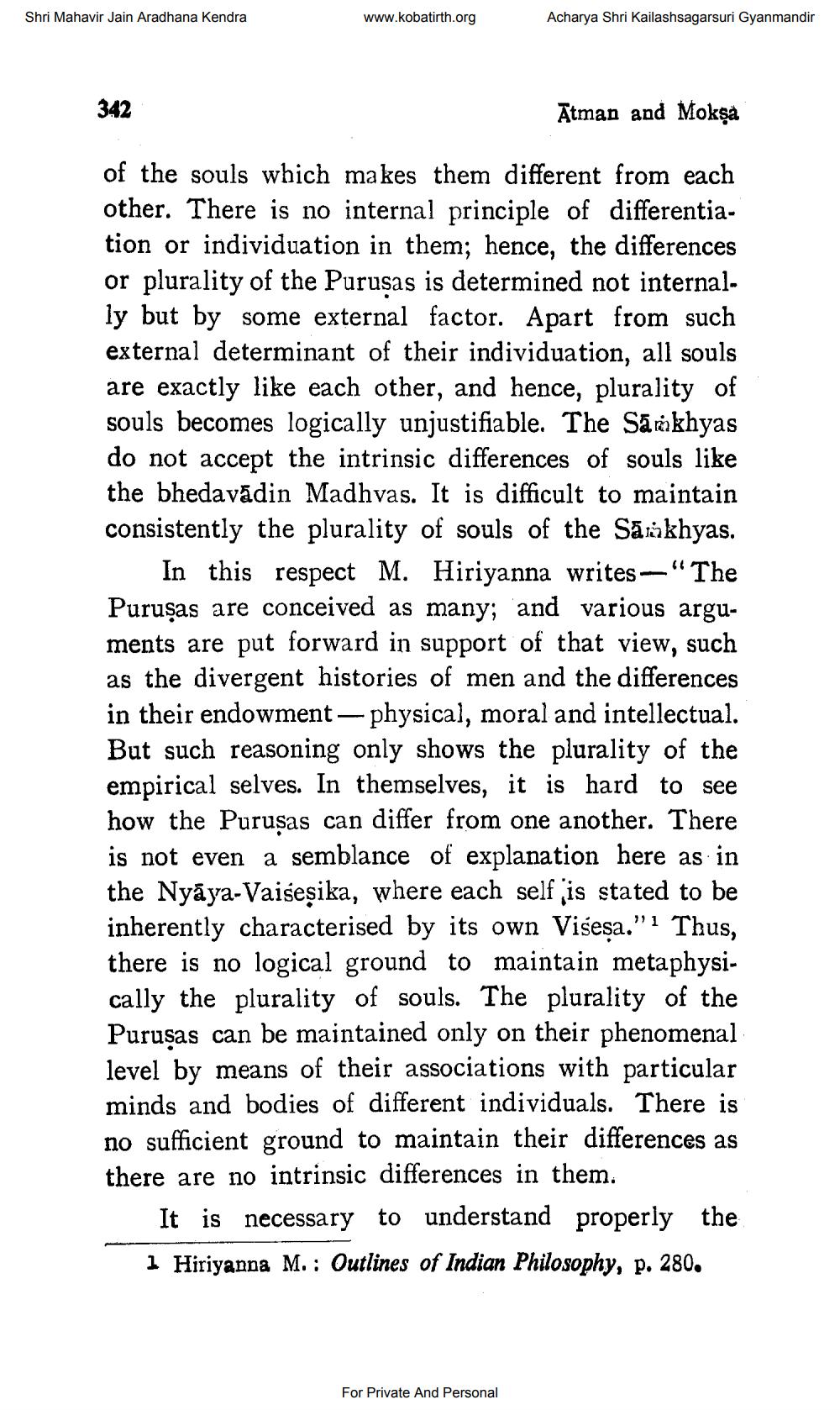________________
Shri Mahavir Jain Aradhana Kendra
www.kobatirth.org
Acharya Shri Kailashsagarsuri Gyanmandir
342
Atman and Mokşa
of the souls which makes them different from each other. There is no internal principle of differentiation or individuation in them; hence, the differences or plurality of the Purusas is determined not internal. ly but by some external factor. Apart from such external determinant of their individuation, all souls are exactly like each other, and hence, plurality of souls becomes logically unjustifiable. The Samakhyas do not accept the intrinsic differences of souls like the bhedavādin Madhvas. It is difficult to maintain consistently the plurality of souls of the Sārakhyas.
In this respect M. Hiriyanna writes —"The Purusas are conceived as many; and various arguments are put forward in support of that view, such as the divergent histories of men and the differences in their endowment – physical, moral and intellectual. But such reasoning only shows the plurality of the empirical selves. In themselves, it is hard to see how the Purusas can differ from one another. There is not even a semblance of explanation here as in the Nyāya-Vaisesika, where each self is stated to be inherently characterised by its own Višesa."1 Thus, there is no logical ground to maintain metaphysically the plurality of souls. The plurality of the Purusas can be maintained only on their phenomenal level by means of their associations with particular minds and bodies of different individuals. There is no sufficient ground to maintain their differences as there are no intrinsic differences in them.
It is necessary to understand properly the 1 Hiriyanna M. : Outlines of Indian Philosophy, p. 280.
For Private And Personal




